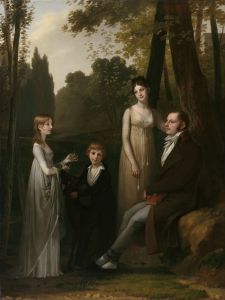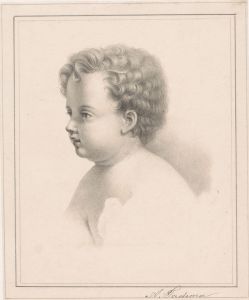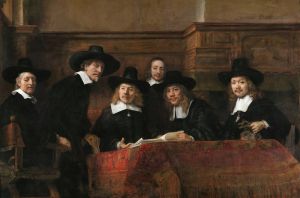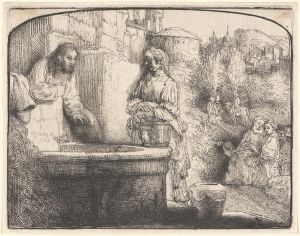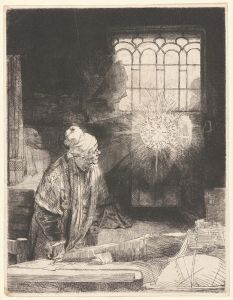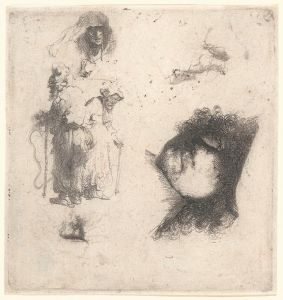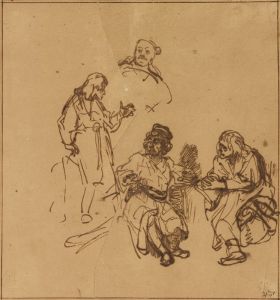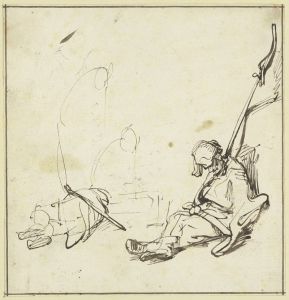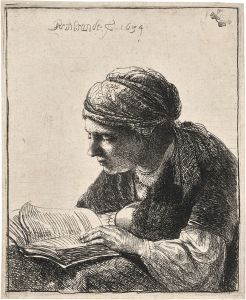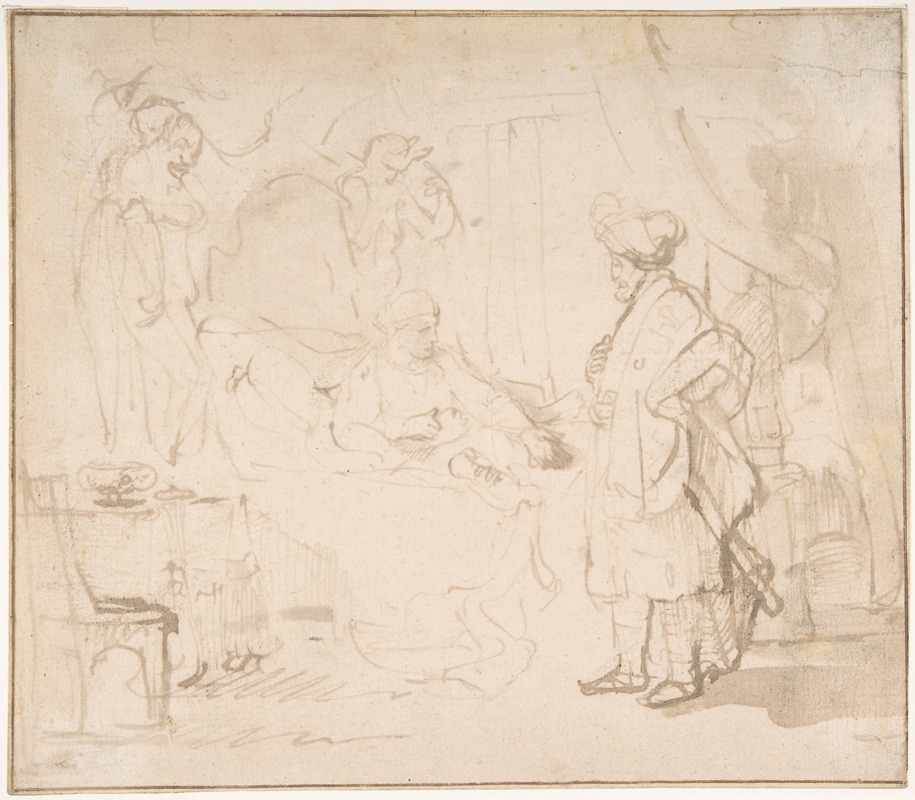
Potiphar’s Wife Accusing Joseph Before her Husband
A hand-painted replica of Rembrandt van Rijn’s masterpiece Potiphar’s Wife Accusing Joseph Before her Husband, meticulously crafted by professional artists to capture the true essence of the original. Each piece is created with museum-quality canvas and rare mineral pigments, carefully painted by experienced artists with delicate brushstrokes and rich, layered colors to perfectly recreate the texture of the original artwork. Unlike machine-printed reproductions, this hand-painted version brings the painting to life, infused with the artist’s emotions and skill in every stroke. Whether for personal collection or home decoration, it instantly elevates the artistic atmosphere of any space.
"Potiphar’s Wife Accusing Joseph Before her Husband" is a painting by the renowned Dutch artist Rembrandt van Rijn. This artwork is based on a biblical story from the Book of Genesis, which tells the tale of Joseph, a Hebrew servant in the house of Potiphar, an Egyptian official. The narrative is a dramatic episode where Potiphar's wife falsely accuses Joseph of attempting to seduce her after he rejects her advances.
Rembrandt, known for his masterful use of light and shadow, as well as his ability to convey deep emotion and psychological complexity, captures the tension and drama of this moment in his painting. The composition typically features Potiphar’s wife in a state of distress, presenting Joseph’s garment as evidence of his alleged misconduct, while Potiphar listens to her accusations. Joseph is often depicted with an expression of innocence and disbelief, highlighting the injustice of the situation.
The painting exemplifies Rembrandt's skill in rendering human emotion and his interest in biblical themes, which were prevalent throughout his career. His works often reflect a deep understanding of the human condition, and this painting is no exception, as it delves into themes of temptation, betrayal, and integrity.
Rembrandt's use of chiaroscuro, the contrast between light and dark, is particularly effective in this painting, drawing the viewer's attention to the central figures and enhancing the dramatic tension of the scene. The light often falls on the accusing wife and the innocent Joseph, symbolizing the moral and ethical dichotomy between them.
The exact date of the painting's creation is not definitively known, as with many of Rembrandt's works, but it is generally attributed to the period of his mature career when he was deeply engaged with biblical subjects. Rembrandt's ability to depict complex narratives with emotional depth made him one of the most important artists of the Dutch Golden Age.
While the painting is a powerful interpretation of the biblical story, it also reflects the broader cultural and religious context of 17th-century Europe, where biblical stories were a common source of artistic inspiration. Rembrandt's work continues to be studied and admired for its technical brilliance and its profound exploration of human themes.
As with many of Rembrandt's paintings, "Potiphar’s Wife Accusing Joseph Before her Husband" is housed in a museum collection, where it remains accessible to the public and continues to be a subject of scholarly interest. The painting is a testament to Rembrandt's enduring legacy as a master of narrative art and his ability to capture the complexities of human emotion and moral dilemmas.






